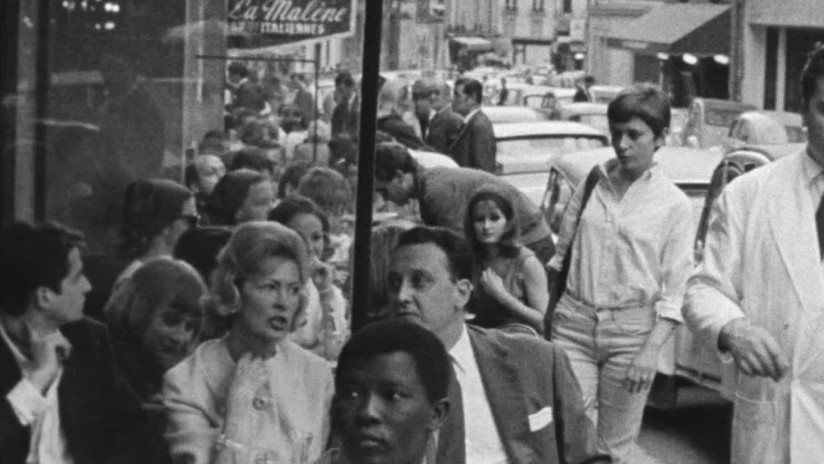You have nothing better to do, so you leave the house for a walk. Anywhere. Starting with a street you know well, until curiosity takes charge.
Sometime later, you pass a narrow alleyway, filled with scaffolding, like that classic window’s screensaver. A guy is doing chinups. You continue until the gravity of another street pulls you in, and what you find is a congregation of people on the steps of an old closed up cinema, art deco, huddled round a fold out table like those used for church faites, blankets strewn everywhere.
A leisurely walk like this is filled with strange sights, life as it is, chaotic, sporadic at times. You feel the life of a city, more than just a layout of streets on a map, but most importantly, your body’s experience of (within) that environment.
This is flânerie.
It’s the thing to do in Paris, where, unlike Swindon, a sidestreet won’t lead you into endless middle-class housing estates, you’ll find yourself instead lost in a seemingly continuously proliferating cityscape brimming with life.
This is my flâneur, but not how it has been in history.
THE HISTORICAL flâneur
MASCULINITY AND CLASS
Two political categories that shape how you see the world. What spaces you frequent, avoid, and the ways you relate to things you witness. In Exeter, I only frequented campus, Queen’s street, and Sainsbury’s. No doubt there are many things I didn’t see.
This why checking your privilege is a good thing. Trying to live beyond your internal bias.
For the flâneur, it was this type that dominate accounts, the only kind that really had the privilege to achieve some of the things the ideal set out.
INVISIBILITY
The joys of freedom: enough money to carry you anywhere, reason to be anywhere, not to be stopped, turned away, or questioned.
No ‘foul’ smell nor a rough look for people to react to them, shuffle or give ‘em space.
And if you’re a woman, especially at the time of Baudelaire or the early twentieth century, the male gaze might catch you, or social expectations will seek to seal you firmly within your body.
We would love to be invisible the way a man is. We’re not the ones who make ourselves visible, in the sense that Sante means, in terms of the stir a woman alone in public can create; it’s the gaze of the flâneur that makes the woman who would join their ranks too visible to slip by unnoticed.
Lauren Elkin, The Flâneuse
BODILESS & TRANSCENDING
Privileged enough to forget about their body for a while, the flâneur can pass through the city convincing themselves that they are just a ghost, and “enormous eye” observing life as it is, without bias.
This position allows the flâneur to live in the shoes of others.
CRITICISMS
There are many.
Who’d have thought.
As I said, being of a particular class and gender determines to some degree the spaces one visits. If they were comfortable enough to forget who they were, they were evidently not going far enough out of their comfort zones. Exploring more marginalised spaces, where they would probably lose their invisibility. Essentially the difference between walking around your hometown and anywhere else in the world.
The body is unavoidable.
The type of spaces encountered and documented, especially for Baudelaire’s collector of beauty, is fractional and not as cosmopolitan as their original aims.
Lauren Elkin has been vocal about the way “women have been written out of the history of cities”. They might not have experienced the same freedom, but the flâneuse could still wander and observe, maybe see the marginalised world better. Women still walked the streets.
The call is to hear from more voices of the city, not just from its privileged male elite.
The political subject, the oppressed, might even be more interesting or qualified to talk of the cities political issues. I strongly believe in the flâneuse as a representative of all those of politicised bodies and identities. Their existence on the margins of society predisposes them to explore beyond themselves.
From here, I recommend you read my articles on Quartet and The Lady and the Little Fox Fur, which illuminate these issues.
Of course,
Don’t let me dampen your dreams of street wandering.

